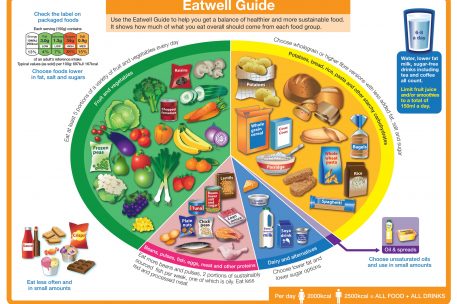Nutrition can be incredibly complex. The latest fad diets often ignore this, resulting in restrictive food rules with little concern about how the prolonged deprivation of nutrients can cause long-term harm to our bodies.
This is why it’s best to follow the advice of Registered Nutritionists who have studied the profession for years and who provide evidence-based information about the impacts of food on your health. Thankfully, here at the DBT, we have the help of Registered Associate Nutritionist Steph Hayes. Some members who work in the south of the county may already know Steph from the away day healthy living talks she delivered last winter. This blog will highlight some of the key points she made in those talks.
Knowing your nutrients is not about calorie counting. It’s about knowing what the food you consume is made up of and how this benefits your health. It’s important to remember that whilst every body is unique, every body will require the following nutrients to function at its best.
Macronutrients
Carbohydrates
Carbohydrates are an important nutrient as they are the body’s main source of energy and fibre. If you don’t eat enough carbohydrates, you will quickly run out of steam and begin to feel tired and lethargic. Fibre is incredibly important for your gut health, with increased consumption of fibre linked to a reduced risk of bowel cancer.
It is important to consume starchy carbohydrates such as potatoes, wholemeal pasta and oats, instead of refined carbohydrates like cakes, biscuits and energy drinks. Don’t forget, fruits and vegetables are carbohydrates too!
Fats
Your body requires fats to transport nutrients throughout the bloodstream, but too much consumption of the wrong types of fats can lead to weight gain. It is important to remember balance in your diet and swap out saturated fats like meats, dairy, and fried foods for healthy monounsaturated and polyunsaturated fats like avocados, nuts and oily fish.
Protein
Protein is an important part of the diet, and should be included in every meal. Your body requires protein for a number of different jobs, but the most well known is for muscle growth and repair. Sources of protein include lean meats, fish, lentils, tofu and beans. It is important to mix your sources of protein – don’t just stick to eating chicken – so that your body can utilise the different amino acid profiles contained within protein, which will keep your body functioning to the highest ability.

Micronutrients
Micronutrients are the wide variety of vitamins and minerals that your body needs for its daily processes. These are not required in the same amounts as macronutrients, but are just as important.
Some of the most well known micronutrients found in our food are:
- Vitamin A for eyesight, skin health and the immune system
- Vitamin B1-12 for variety of functions through the body, the immune system and energy release
- Vitamin C for cell health, bone health, skin and wound healing
- Vitamin D, Phosphate & Calcium for bone, teeth and muscle health
- Iron needed to make red blood cells which carry oxygen around the body
What does this look like for me?
The easiest way to ensure that you are consuming the right nutrients is to follow the UK Government’s Eatwell Guide. Based upon years of research, the Eatwell Guide demonstrates the best mix of daily nutrients for most people in the UK in a handy plate diagram. You can click on the image below and print it out to stick up wherever you prepare your food, so that you always have a reminder.



